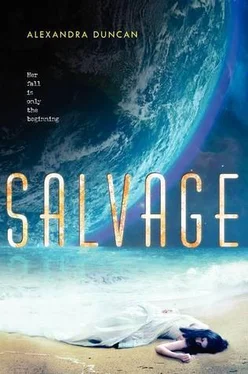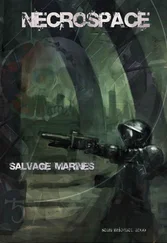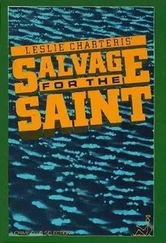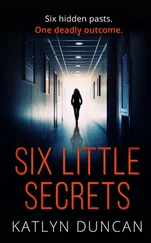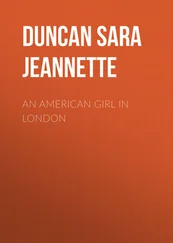“Ava?” Miyole says.
I turn. My eyes haven’t adjusted yet, and I can’t find her in the dark.
“Will you be upstairs or down?” Miyole asks this every night.
“Down,” I say. “Till Soraya gets home, at least. I’m going to practice reading a little more.”
“Okay.” Her voice relaxes, and the dim outline of her head drops against the pillow.
I slip out of the room. The distant whirr of air pumping through the vents and all the house’s tiny clicks and beeps leave me jumping in my skin. This house is so big. Whenever I’m alone, I start to imagine someone creeping around after me, pale-skinned crewemen peeking through the windows and men waiting in the shadows with knives.
I walk soft to my own room, reach under the mattress, and pull out my grandfather’s book. A shiver of guilt passes through me. I’ve been waiting for a night like tonight, when Soraya is gone and Miyole fast asleep, to try and read it.
I drop my crow on the kitchen charger and stand at the back window, listening to the dish cleaner gurgle and looking out at the dark leaves of Soraya’s tree lifting in the breeze. Miyole took a picture with her crow and had it tell us what kind of tree was. Japanese maple. Saved from one of the drowned islands west of here before they went under.
I mean to switch on the lights and curl my feet up under me on one of the plush couches, but as I pass the downstairs hallway, the heavy oak door at the far end catches my eye. We don’t talk about the door, not even Miyole and me. Soraya pretends it isn’t there, and so we do, too.
I pad toward it, one arm out before me, the other clutching my grandfather’s book. The eyehole glints down at me dully, and the brass handle is cold under my palm.
I crack the door open. Dank and must hangs in the air. I edge into the dark. I don’t know what I expect. A sealed room of rare books, or cold, humming machines like the ones in Pankaj’s house. But as my eyes adjust, all I make out is a broad, dark wood desk in a sea of white carpet. The picture window on the right side of the room looks out on the garden and the maple. Empty bookshelves line the walls.
I shut the door, walk around the desk, and pull out the leather chair. Its skin crackles softly as I sit. The house keeps quiet here. None of its little life noises reach past the heavy door. I snap on a lamp. Buttery light floods the room. Across from me, a red-and-gold-spotted chair waits, empty. I run my hands over the desk’s wood top, feeling the grains and pits and places where the veneer has worn off after years of use.
Whose desk was this? Not Soraya’s. She never comes in here. But I can read the desk’s battered top like the back of a tapestry. Someone sat here, wrote here, read here every day. My grandfather Vikram, whose book I hold even now? I rub my finger against one spot on the desk’s edge where it’s worn down to yellow wood. The worn place fits the width of my finger perfectly. Did my grandfather rub that spot unconsciously as he fell lost in reading every day? Did he drink tea here? Did he think on my mother here? My grandmother?
I tug open one of the desk’s drawers. A deep smell, something rich and smoky sweet, floods out, but the drawer itself is empty. It smells indefinably old, as if whatever made the scent has been trapped there for years. I try the next drawer below it. Nothing. Then the two drawers on the other side. Still nothing.
Soraya was right, I think. There’s nothing here. Only one left, the thin center drawer above my lap. It sticks, but I tug and jiggle it, and finally, with a tooth-rending screech, it opens.
A smooth, palm-size device, dark as stone, sits alone on the right side. I pick it up. It’s cold, heavy in a pleasing way, as if it’s meant to rest in a hand or the bottom of a pocket. I smooth my thumb over its surface, and it flickers to life. Light and color resolve themselves into an image. A youngish man with delicate lines of gray threading his beard leans down to put an arm around a lovely, dark-haired woman with warm brown skin, wearing a pink checkered scarf much like one of Soraya’s. A smallgirl in a yellow dress perches on her lap, all big dark eyes and black curls. Behind them, the purple-black leaves of Soraya’s maple reach down into the frame. I lean closer to the screen. Who . . . ? But then it comes to me. My grandfather. Him and his firstwife and . . . Soraya. Soraya is the smallgirl.
I brush a finger over her cheek. At my touch, the picture jumps and dissolves into a different image. A girl near my own age, hair a pale flame and shell-white cheeks cracked with burst capillaries, lies propped in a birthing bed, a rose-skinned baby in the crook of her arm. I recognize the room and the arched doorway beyond her bed. It’s the Parastrata’s birthing room. And I recognize the baby’s dark hair. It’s the same hair as little Soraya’s, the same as mine. The mother-girl smiles out at me, so drunk with love it pierces the screen and all the time in between that moment and this.
Maram, my grandmother. And my mother, Ete, the baby.
I lower the picture to my lap. Gingerly, I untuck my grandfather’s book from beneath my arm and lay it flat on the scored desktop. The paper crackles as I open it.
FOREWORD
In the course of my study on the trans-celestial merchant tribe Parastrata, or crewe as they prefer to be called, I was required to take extraordinary measures to gain their trust and complicity. Some contend I have strayed beyond the line of proper scientific inquiry. To them I say, what is propriety compared to the pursuit of knowledge? In modern sociological research, one must, at times, set aside one’s own societal norms in order to collect the most accurate data. Without my transgression of our scientific community’s rather provincial taboos, the fascinating culture of the Parastrata would remain a mystery to this day.
I frown. The most accurate data? Fascinating culture? I read on, glad for the practice I’ve been getting at Revati. I don’t know all of the words on sight, but my grandfather’s meaning is clear. Maybe school isn’t completely wasted on me.
During my time aboard this vessel, it was requested of me by the captain, Parastata Harrah, that I marry his youngest daughter, Maram. Had I refused, the entire course of my research would have been thrown into jeopardy, as I would have been required to disembark at one of the terrestrial outposts or orbital stations along our route, rather than completing the crewe’s traditional two-and-a-half-year circuit with them.
Thus, I entered into merchant crewe society not as a mere observer, but as a participant in its unusual and vibrant cultural life. From this vantage point, I was able to document the peculiarities and superstitions that make up the everyday interactions of merchant crewes, as well as their most sacred rituals, which would normally remain closed to outsiders. Through my marriage to Harrah’s daughter, the birth of a child, and my young wife’s unfortunate demise shortly thereafter, I witnessed the unique customs surrounding the ceremonies of betrothal, birth, and death. Lest my critics accuse me of heartlessness, note that, although I have completed my period of observation aboard the Parastrata, I continue to maintain a relationship with the crewe and support the issue of my short-lived marriage through the regular provision of gifts.
The issue of my short-lived . . . ? My eyes widen. My mother. He means my mother. It’s no more than I already knew, but the way he puts it is so cold.
I have elected to allow my daughter by Maram to remain with her crewe. Though I myself may be willing to alter my own cultural framework in the interests of scienctific inquiry, I have no desire to disrupt the pattern of life among the objects of my study. Thus, I have seamlessly inserted and removed myself from the course of crewe life with a minimum of disruption. My tactics may prove unorthodox, but I have not acted without moral consideration for my subjects’ welfare, and thus I remain confident in my methodology. Everything I have done, I have done with the pursuit of knowledge foremost in my mind.
Читать дальше
